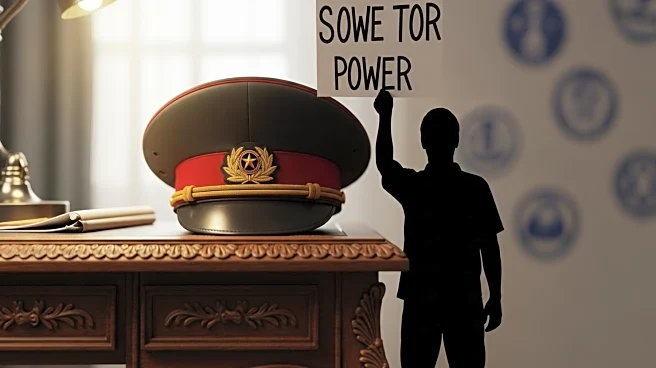What is the story about?
What's Happening?
Madagascar's President Andry Rajoelina has appointed General Ruphin Fortunat Zafisambo as the new prime minister in response to ongoing youth-led protests. The protests, known as Gen Z Mada, began on September 25 due to public dissatisfaction over water and power shortages, corruption, and high unemployment. The appointment of an army general marks a significant militarization of the government, as Rajoelina seeks to secure the army's support amidst fears of a coup attempt. The protest movement has rejected the general's appointment and demanded Rajoelina's resignation within 48 hours.
Why It's Important?
The appointment of a military figure as prime minister highlights the escalating tensions in Madagascar and the government's attempt to stabilize the situation through military backing. This move could have implications for civil-military relations in the country and may affect Madagascar's political stability and governance. The protests reflect widespread public discontent, which could lead to further political and social unrest if not addressed effectively.
What's Next?
The Gen Z Mada movement's ultimatum for President Rajoelina to resign within 48 hours could lead to intensified protests and potential clashes with security forces. The government's response to these demands and the general's ability to restore order will be crucial in determining Madagascar's political future. International observers may closely monitor the situation, considering the potential for human rights concerns and the impact on regional stability.
Beyond the Headlines
The militarization of Madagascar's government raises questions about the role of the military in civilian governance and the potential erosion of democratic processes. The protests also highlight the challenges faced by youth in Madagascar, including unemployment and economic hardships, which could influence future policy directions and international aid strategies.















